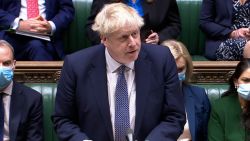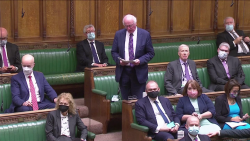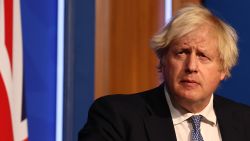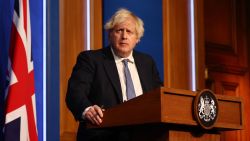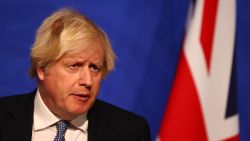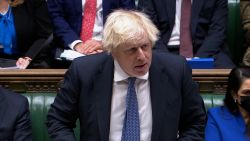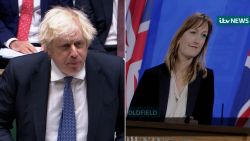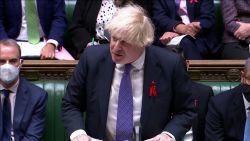With days to go before a possible October 31 exit date from the European Union, people in Britain are still unsure about what Brexit will mean for them.
And it appears that travelers to the United Kingdom feel the same way – and might be staying away as a result.
Flight fares from international destinations to the UK are down by as much as 49% year on year for the month of November, according to data commissioned by CNN.
And according to aviation experts, cheap flights normally mean low passenger numbers.
“Airlines want to fly full if they can, and see how full the flights are in the run-up to departure,” David Tarsh, spokesperson for Forward Keys, which analyzes airplane passenger data.
“If they’re a bit empty, they can flex the airfare. Then at some point that becomes very attractive.
“If airlines are finding their flights aren’t so full, they’ll flex on price to get passenger numbers up.”
72% of longhaul routes to the UK are cheaper
Travel app Hopper, which tracks airline fares, looked at 50 major international flight routes to London’s Heathrow airport, split evenly between shorthaul and longhaul destinations.
Of longhaul routes analyzed, 72% – or 18 out of 25 – showed price dives for November 2019, when compared to November 2018.
Short haul fares held slightly better, with 14 out of 25 falling year on year. However, the fare drops were more extreme, especially on business routes. Fares from the Channel Island of Jersey – known as a financial center – plummet by 49%, followed by Italian business capital Milan at 26%.
Fares to London from Madrid and Budapest have also fallen by over 20%, year on year.
The biggest drops in long haul fares are seen on US-UK routes, with Los Angeles-London fares cut by an average of 19%, and New York City and Miami both 18% cheaper, year on year.
Other long haul routes showing price cuts of over 10% include Buenos Aires, Sydney and Shanghai.
Prices down across the board

According to Hayley Berg, economist at Hopper, who compiled the research, airfares have dropped worldwide this year, due to factors including added airline capacity, fierce competition, the expansion of low-cost carriers and favorable fuel prices.
Flights to Paris from LA and New York from London have dipped by similar amounts, she says – and New York in particular is seeing a decline in pricing across the board. “We’re seeing global trends like these – major themes have pushed airlines to keep prices low.
“It’s difficult to tease out what could be due to Brexit. We think that these macro trends explain the majority of decline in prices, but it’s very possible that we’re seeing changes regarding where consumers want to travel because of Brexit.”
And aviation blogger Gilbert Ott said that there has been a “combination of factors” seeing prices drop over the past year.
While two transatlantic airlines – Wow Air and Thomas Cook – have gone bust this year, he says legacy airlines continue to take fees lower and lower as they try to squeeze low-cost carrier Norwegian out of the market, he says, in a “fight to the death.”
A year ago, Virgin Atlantic announced UK-US fares as low as £299 ($384) return, he says. “People were shocked, but now they’ve dropped to £267 [11% down, to Boston].”
But he added, “There definitely is [political] uncertainty. Between all the climate issues and everything [Brexit] going on, there are definitely people traveling less. Maybe demand isn’t as great. No one likes uncertainty, though there’s no way to say that for certain.”
Supply and demand
Tom Jenkins, CEO of the European Tourism Association (ETOA), the trade association for tour operators to Europe, says airline pricing comes down to supply and demand. “People travel if the price is right, and this is people behaving as the market should,” he says about the UK price drops.
He compares it to an ETOA member who launched an “exceptionally low rate” deal for a week-long trip to Dublin from New York, shortly after 9/11. “They placed an ad in the New York Times and their allocation was sold out in two hours,” he says. “America travels if the price is right.”
And he thinks that Brexit is a major factor in the price drops to the UK. “It’s entirely natural that demand has dropped [because of Brexit],” he tells CNN. “Prices will drop until the demand recovers. But demand always recovers.
“Currently there’s confusion in the marketplace about London as a destination after Brexit, and I don’t think that’s ill informed. Given that the UK government has at various stages stressed the likelihood of a no-deal Brexit, travelers are likely concerned.”
Drop ‘entirely natural’ in view of Brexit
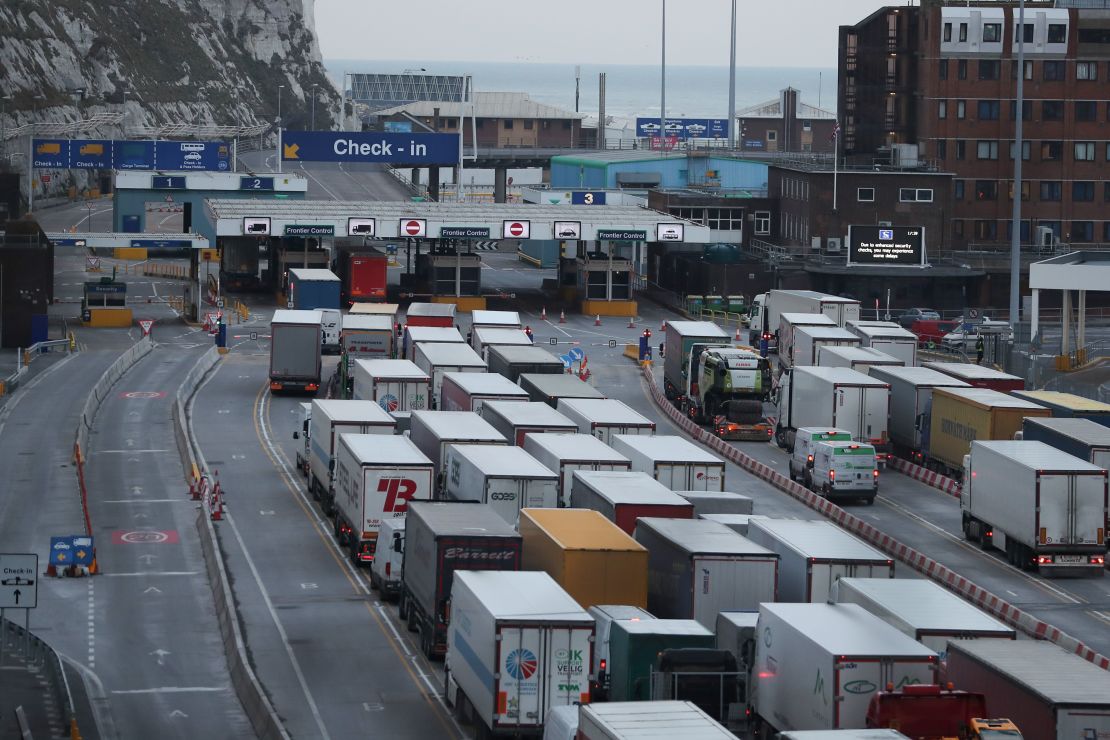
In the event of Britain leaving the European Union without a trade deal in place, “crossing the border out of the UK into Europe is, on paper, extremely problematic,” says Jenkins. As previously reported by CNN, lines for immigration lanes could soar, potentially becoming days-long if EU countries refuse to bend the rules.
“Immigration facilities at nearly every European destination would be overloaded, and any non-EU visitor to the UK traveling by such a route would be caught up in this,” says Jenkins. “The ETOA feels this situation is extremely unlikely but it is a logical consequence of the UK government’s position.”
Then there’s the way the UK is framing itself as a destination. A September document from the UK Home Office, addressed to EU citizens intending to travel to the UK after a no deal, warns of “visible changes at the UK border” and “tougher criminality rules,” and the ending of the EU-specific customs channel.
It also says: “We will introduce blue UK passports… as a symbol of our new, sovereign identity.”
Jenkins says about the document: “You have to ask yourself, is the uncertainty and the statements being made helping demand?
“Is the UK projecting itself as a welcoming country which is easy to enter and easy to leave? It’s difficult to point to specific measures to say this is unhelpful, but none of this is helpful.”
What lies beneath a price drop?
Significant falls in price year on year are unusual, according to David Tarsh, who declined to comment specifically on the UK price drops.
“If all things were equal, you’d expect flight prices to rise year on year by inflation,” he tells CNN – although he says that factors affecting fares include the price of oil, competition levels on specific routes, the timing of public holidays and “extraordinary events” including terrorism, political unrest, natural disaster and economic distress.
Although the price of oil has fallen overall in 2019, the average cost of crude oil per barrel in November 2018 was $62.32, while the most recent month to compare in 2019, September, averaged at $60.04 – a decrease of 3.65%.
And rather than adding new routes and competition, two airlines which served the UK – Thomas Cook and Wow Air – have gone bust this year.
As for extraordinary events, Hong Kong is in a similar situation with its pro-democracy protests. August saw its largest monthly drop in air passengers in a decade, where numbers fell by 12.4% and fares were slashed as a result to encourage new bookings.
Tarsh says that the Hong Kong price drops are “hard not to link to the pro-democracy protests.” With some flights dropping in price year on year by over 20%, does Brexit qualify as an “extraordinary event?”
Emma Coulthurst, travel commentator for price comparison site Travelsupermarket.com thinks it does.
“Vacation prices have definitely dropped due to Brexit concerns,” she tells CNN. “Earlier in the year, prices for Easter holidays – the date for which fell just after the original March Brexit deadline – were some of the lowest ever.
“November is, again, seeing this. Brexit is an extraordinary event.”
Prices slashed for UK travelers too

Coulthurst says it’s not just visitors flying into the UK who are seeing their fares cut. Package holiday prices from the UK to Europe in November are down by up to 50% year on year.
Travelsupermarket.com analyzed 2.5 million vacation prices from more than 25 providers. The average cost of a trip to Portugal’s Algarve coast has halved, compared to November 2018. Prices for Florence are down 42%, Milan 29% and Madrid 21%. Venice, Vienna and Nice packages are also down by over 10%.
Coulthurst says: “Low cost airlines are running seat sales to encourage people to travel after the Brexit deadline. November means low prices and fewer crowds, but with the Brexit factor added in as well, there are really good value package holiday prices from the UK to Europe, which you wouldn’t normally see so close to departure.
“Many vacations are going for a song.”
The future of UK travel
Hayley Berg of Hopper thinks the real Brexit effect will become clear after the exit date.
“It certainly feels like we’re on the verge of something unique in the airline industry, knowing how well the UK is connected to Europe and longhaul cities like New York. There are definitely different layers of short and long-term impact that we expect to see.
“The immediate impact will be uncertainty for UK travelers. Then, if there’s an impact on currency values, that’ll make it immediately more attractive to countries with stronger currency.
“If the US dollar becomes stronger, the UK would become even more attractive for US travelers, and possibly prices would rise to meet that increase from demand.
“But I don’t know if I expect to see that spike in demand because there’s a lot of uncertainty about what travel to the UK would look like. Although we’ve seen consistent growth in interest in the UK since [referendum year] 2016, a spike in interest might not translate into a spike in booking.”
Longer term, the political situation could see prices rise, she says.
“If the UK becomes more isolated and it becomes more difficult or expensive for airlines to have flights in and out of the country, and as a result they cut back on the number of [flights to] the UK, we would expect that prices would rise within the first one, two or three years.
“2020 will be interesting to watch.”


